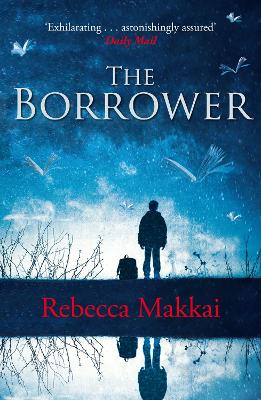Reviewed by Briana @ Pages Unbound on
The topic is just not overly engaging from any angle, and Lucy is not particularly tactful. She is very clear about the point that she is not a moral relativist by any means. She is closer to a moral absolutist who thinks Christianity is absolutely wrong. Fair enough. She is allowed to hold such an opinion, but one could hope she would a little more polite about it. She has a lot of insults for Ian’s family’s religion (again, fair enough, since most people, even those who oppose gay marriage, are willing to admit anti-gay classes are not helpful or effective), and she also has a lot of contempt for Catholicism. The problem here is that her disgust is somewhat uninformed. She laments that, at one point, she and Ian have ended up visiting a Catholic church. She first panics that the priest and all Catholics are violently anti-gay and will harm Ian on the spot, and then worries that the priest will force Ian into a confessional to spill his soul, and once he admits that Lucy has “kidnapped” him, the police will arrive. Classifying all Catholics as hateful is unfair. Believing priests force people—particularly non-Catholic people—into the sacrament of Reconciliation, is ridiculous. Basically, Lucy is an ignorant, somewhat prejudiced character herself, which is certainly allowed (Who expects literature to feature only likeable, intelligent characters?), but her personality will not be a draw for many readers, and could actually be offensive.
Otherwise, the text is creative, but Makkai’s writing gives the distinct impression of one who is trying very hard to sound literary and clever. The story might have benefited from a more straightforward style. The book also has a rather modern philosophy, in some conclusions about how life is not very happy and no one can really have adventures or be a hero or do much of anything worth doing. It is a hard sell to those readers who are idealists or who read books for some form of escapism. Yet The Borrower does have one big, positive belief about books, for which some of its other pessimism might be forgiven:
"But books, on the other hand: I do still believe that books can save you.
"I believed that Ian Drake would get his books, as surely as any addict will get his drug. He would bribe his babysitter, he’d sneak out of the house at night and smash the library window. He’d sell his own guinea pig for book money. He would read under his tented comforter with a penlight. He’d hollow out his mattress and fill it with paperbacks. They could lock him in the house, but they could never convince him that the world wasn’t a bigger place than that. They’d wonder why they couldn’t break him. They’d wonder why he smiled when they sent him to his room."
The Borrower, I am sure, does have an audience, but the audience simply does not include me. The plot was a little slow, the message a little forced, and the conclusions a little depressing. I wanted a book that was more about books and got one about the evils of certain Christian groups and Lucy Hull’s personal problems. Perhaps readers who have different expectations will appreciate the book more.
Reading updates
- Started reading
- 19 December, 2012: Finished reading
- 19 December, 2012: Reviewed
- Started reading
- 24 December, 2012: Finished reading
- 19 December, 2012: Reviewed
